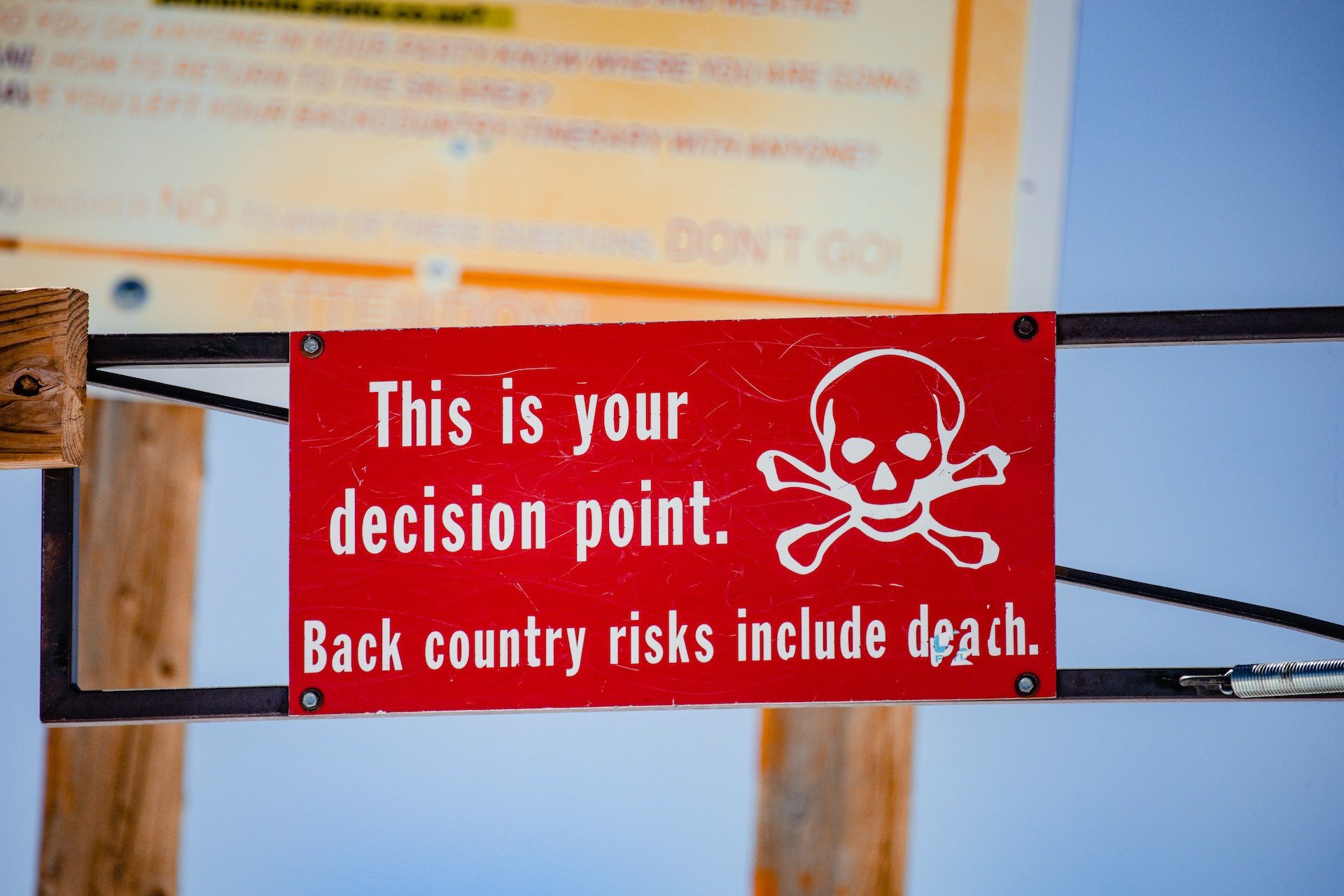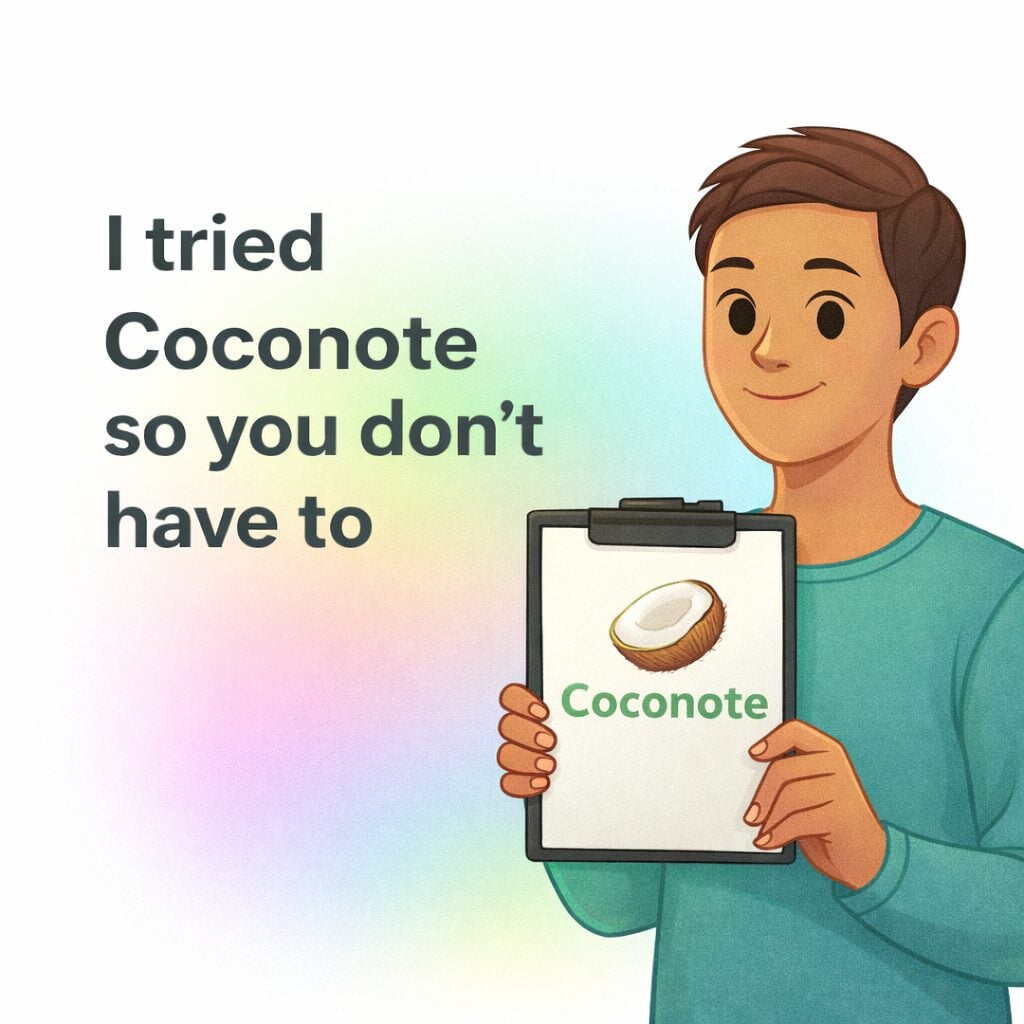The risks of hidden recordings are quite big, legal-related and can be quite monumental – both for a business and the individual.
Stop for a second and imagine you’re in a work meeting on a video call, and someone secretly records the whole thing. That could make a lot of people uncomfortable. In business, we talk about deals, plans, and sometimes sensitive info that isn’t meant to be shared. If someone tapes it without asking, it can feel like a betrayal. When most people will be thinking about how to record on Zoom, is a question of openness rather than it being covert.
In the workplace, trust is key. We need to know we can speak openly without worrying about recourse. If that trust is broken, it can damage relationships and even harm the company’s reputation. It might be tempting to record a meeting, especially if you’re talking about something really important or complex but it’s still important to get a thumbs up from everyone involved before hitting that record button. Not only is it about trust and respect, but there are often rules and laws about recording conversations.
In many places, taping a chat without telling everyone is illegal. So, when it comes to business, you have to balance the need to remember what was said with the right way to do things. And that usually means recording a meeting is fine—as long as everyone knows and agrees to it. I mean, it’s not like anybody is really going to watch it…
@tldv.io Be honest. Have you ever actually watched the recording? #workfromhome #meetings #meetingrecording #asyncwork
♬ original sound - tldv.io - AI Meeting Recorder
🔑Key Insights 🔑
Best Practices in Recording Calls
- Consent Cultivates Trust: By seeking consent, organizations demonstrate respect for privacy, fostering a trusting and transparent workplace culture.
- Legal Compliance Is Empowering: Adhering to privacy laws not only avoids legal pitfalls but also strengthens the organization’s reputation for integrity and ethical practices.
- Open Communication Flourishes: When participants are aware and agreeable to recording, they communicate more freely, enhancing the quality of discourse and collaboration.
- Security as a Priority: With consent, the use of recording software assures participants that their data is handled securely, bolstering confidence in the organization’s cybersecurity measures.
- Consent Encourages Participation: Knowing their rights are respected, team members may be more willing to contribute, knowing they have control over their digital presence.
- Ethical Recording Boosts Brand Image: Ethical practices in recording calls reflect positively on the brand, signaling to clients and partners a commitment to high standards.
- Knowledge Sharing with Respect: Consent-based recordings allow for the ethical sharing of knowledge, ensuring that information dissemination aligns with personal and organizational values.
- Dispute Avoidance through Clarity: Clear consent protocols minimize misunderstandings about what can be shared, reducing the potential for disputes.
- Enhanced Focus and Efficiency: With the consent issue settled, participants can focus on the meeting’s content, making discussions more productive and goal-oriented.
What Are the Legal Implications of Recording Video Calls Without Consent?

UNITED STATES

Federal Law: At the federal level, the Electronic Communications Privacy Act (ECPA) permits “one-party consent,” which means any individual in the conversation can legally record it without notifying the others.
State Variations: However, there are important variations at the state level. Several states, including California, Connecticut, Florida, Illinois, Maryland, Massachusetts, Montana, New Hampshire, Pennsylvania, and Washington, have implemented “two-party consent” laws. These laws require that all parties in the communication give their consent to be recorded.
Ethical Note
In the U.S., where “one-party” consent might be legally sufficient, companies often face an ethical decision: to prioritize transparency or to leverage the flexibility the law provides. Ethically-conscious businesses tend to opt for transparency, recognizing that trust, once broken, is hard to rebuild. This is particularly true in “one-party” states where the ethical standard is to inform all parties of recording, despite what the law allows. It reflects a commitment to ethical best practices that foster trust and demonstrate respect for individual privacy across all business interactions.
Adhering to this ethical approach not only aligns with evolving privacy norms but also signals to clients and partners that a company is forward-thinking and principled in its operations.
EUROPEAN UNION

GDPR Compliance: Within the European Union, the General Data Protection Regulation (GDPR) sets a high bar for privacy rights, requiring explicit consent from all participants before any form of recording. The GDPR enforces strict rules on the processing of personally identifiable information, and a breach can lead to substantial fines.
UNITED KINGDOM

Data Protection Act: Following Brexit, the UK adheres to its own Data Protection Act which aligns closely with GDPR principles, in fact integrating them directly. It mandates that individuals must be informed about the recording, its purpose, and must give consent, ensuring a high level of privacy protection.
SOUTH AMERICA
Varied Legislation: Countries across South America are increasingly valuing privacy. For instance, Brazil’s Lei Geral de Proteção de Dados Pessoais (LGPD) mirrors GDPR, requiring clear consent for recording communications. Other countries are following suit, with legislation in various stages of development.
MIDDLE EAST
Emerging Regulations: In the Middle East, the approach to call recording can vary significantly. Some countries have strict privacy laws that require consent, while in others, the regulatory framework might be less clear or in development. Companies operating here need to pay close attention to both local laws and evolving legal trends.
JAPAN
Privacy Laws: Japan’s Act on the Protection of Personal Information (APPI) requires that individuals be notified of the purpose of recording calls and that their consent is obtained, reflecting a strong cultural emphasis on privacy and respect.
AUSTRALIA
Privacy Act: Under the Privacy Act and the Telecommunications (Interception and Access) Act, Australia generally requires that all parties consent to the recording of a conversation. Exceptions do exist, but they are narrow and well-defined.
ETHICAL CONSIDERATIONS GLOBALLY

Across the globe, while the legal specifics may differ, the underlying ethical imperative aligns: respect for privacy and the principle of consent transcends borders.
Companies with international dealings are wise to adopt a consistent, ethical approach to recording policies, irrespective of local legal minimums. This not only simplifies compliance but also solidifies a reputation for integrity and respect for personal rights.
Each of these regions highlights the necessity for businesses to not only be legally compliant but to operate with a global ethical perspective on privacy. The respect for the privacy rights of individuals is becoming a universal norm and a best practice that all companies should embed in their corporate policies.
Even if the country your colleague, prospect, or customer is based in isn’t on this list, it’s worth investigating what the local practice is. Alternatively, opt for a robust version of some of the most stringent protocols as a blanket policy.
The Impact of Covert Recordings on Trust and Privacy in Virtual Meetings
Covertly recording virtual meetings can seriously damage workplace trust and compromise personal privacy. These digital spaces are meant for open dialogue and the exchange of ideas; when that space is violated by undisclosed recordings, it can shift the dynamic entirely.
Trust is a critical element in any team’s success. If members sense that their conversations could be recorded without their consent, the willingness to communicate openly is likely to diminish. This breach of trust doesn’t just affect the immediate participants but can send waves of caution throughout the organization, impacting overall morale.

In fact, a significant survey finding underlines this concern: 73% of employees feel that introducing any type of workplace monitoring would damage trust between workers and their employers. This sentiment reveals the precarious balance that exists between organizational oversight and personal privacy. The expectation of confidentiality is integral, and when employees believe they are being monitored covertly, it can lead to a pervasive sense of unease that stifles honest communication and collaboration.
Privacy is equally important. Individuals expect that their discussions in a professional context remain confidential. Discovering a breach in this expectation can leave them feeling vulnerable and hesitant to engage fully in future discussions. The resulting atmosphere can stifle innovation, as team members may choose to self-censor to protect their privacy, hindering the collaborative process.

Privacy is equally important. Individuals expect that their discussions in a professional context remain confidential. Discovering a breach in this expectation can leave them feeling vulnerable and hesitant to engage fully in future discussions. The resulting atmosphere can stifle innovation, as team members may choose to self-censor to protect their privacy, hindering the collaborative process.
Erik Erikson emphasized trust as the first stage of psychosocial development—essential for healthy relationships. When recordings occur secretly, it strikes at this crucial developmental stage, suggesting that the environment is not trustworthy, which can have a chilling effect on collaboration.
Psychological safety, a concept highlighted by Amy Edmondson, describes a space where individuals feel secure enough to take risks and voice their opinions without fear of negative consequences. Secret recordings jeopardize this safety, potentially transforming open forums for idea sharing into spaces of guarded communication. As a result, individuals may hold back valuable insights, limiting the group’s potential for innovation and problem-solving.
When the expectation of privacy is breached through secret recordings, trust erodes quickly. This erosion can lead to a breakdown in team dynamics. Individuals may become more cautious, less open, and more skeptical, which can slow down decision-making processes, reduce the sharing of knowledge, and overall, create a less cohesive team. The impact of such a breach is not limited to the individuals directly involved but can ripple through the entire organization, creating a culture of suspicion and reservation.
What Should You Consider Before Recording a Video Call?

When considering recording a video call, selecting the right tools and understanding their features is as crucial as the consent process. Here’s a condensed checklist incorporating these aspects:
1) Explicit Permission: Always obtain clear, explicit consent from all participants before recording. Written consent is ideal for formal settings. This can be something as simple as an email.
2) Participant Notification: Use video conferencing software that notifies all participants of recording automatically.
3) State Purpose: Clearly communicate the reason behind recording the session.
4) Confidentiality: Have confidentiality agreements in place if sensitive information is to be discussed.
5) Data Protection: Ensure your recording practices comply with applicable data protection laws. If in doubt, use the most stringent guidelines and laws as a basis.
6) Secure Storage: Store recordings securely using encryption and strict access controls.
7) Inform of Rights: Advise participants of their rights regarding the recording.
8) Retention Policy: Clearly define how long recordings will be kept and when they will be deleted.
9)Controlled Access: Limit recording access to authorized personnel and outline conditions for sharing.
10) Review Best Practices: Regularly update recording practices to adhere to current privacy laws and ethical standards.
11) Select a Reputable Tool: Choose a recording platform with a strong reputation for security and privacy compliance, ensuring it follows industry best practices and adheres to relevant laws.
12) Understand Tool Features: Be knowledgeable about the recording tool’s capabilities, particularly regarding starting, pausing, and stopping recordings, as well as how it manages data deletion requests.
By combining these guidelines, you’ll create a responsible framework for video call recording that respects legal requirements, ethical standards, and technical safeguards.
Reassurance with tl;dv
Integrating tl;dv into your video call practices can significantly enhance the productivity and inclusivity of your virtual meetings, provided that you navigate the consent process correctly.
Here’s a brief rundown of why it’s beneficial to use tl;dv and why the extra steps of securing consent are worthwhile:
Comprehensive Capture: tl;dv ensures that every aspect of the conversation is recorded, which is invaluable for documentation, clarity, and for those who might miss the live session. This comprehensive capture means no detail is overlooked, and everything from verbal nuances to visual cues can be reviewed later.
Inclusivity: By recording with tl;dv, you’re fostering an inclusive environment. Team members who cannot attend the live call due to time zone differences, personal commitments, or unforeseen circumstances can watch the recording at their convenience, ensuring they’re kept in the loop.
Knowledge Management: Recordings can become a part of your organization’s knowledge base. This is especially useful for training purposes, reviewing project timelines, or revisiting strategic decisions.
Accountability and Accuracy: Recorded calls can serve as a verifiable account of what was agreed upon or discussed, which can be crucial for maintaining accountability and avoiding miscommunication.
Efficiency: tl;dv’s features like automatic transcription and translation can save time and resources, allowing participants to focus on the discussion rather than taking extensive notes. This leads to a more engaged and productive meeting.
Legal and Ethical Assurance: Obtaining consent ensures that you are legally compliant and ethically sound in your recording practices. It also reinforces a culture of transparency and respect within your organization. When a meeting is recorded using tl;dv, participants are proactively alerted through multiple channels—be it email, calendar notifications, or chat messages—affording them the opportunity to opt out by leaving the meeting if they prefer.
Trust and Openness: When participants know a call is being recorded with their consent, it establishes a foundation of trust. This openness encourages more candid conversations and can lead to more innovative ideas and solutions.
Reduced Misunderstandings: With the ability to replay parts of the conversation, misunderstandings can be quickly cleared up, ensuring everyone has the same information and interpretation.
The task of getting consent is a small price to pay for the extensive benefits that recording a call can offer.
Using tl;dv, with its robust recording capabilities, paired with a culture of explicit permission, can transform the dynamics of your team’s communication, leading to a more connected, informed, and productive workforce.
How Can You Protect Yourself in Video Calls?
On the other side wanting to protect yourself against unwarranted recording is a valid concern. Cybersecurity experts recommend a few key strategies:
- Use Trusted Platforms: Choose video conferencing tools that are known for strong security measures. These include Google Meet, Zoom, Microsoft Teams – all of which are compatible with the equally trusted tl;dv.
- Keep Software Updated: Regular updates often patch security vulnerabilities.
- Be Wary of Unknown Participants: If there are participants you don’t recognize, verify their identity.
- Control Sharing Settings: Only share your screen or content when necessary and be aware of what is visible.
- Use Strong Passwords: Protect your meetings with strong, unique passwords and consider using waiting rooms.
- Cover Your Webcam: When not in use, cover your webcam to prevent any unauthorized viewing.

Signs that may indicate a call is being recorded without consent include:
- Unusual Notifications: If your conferencing tool shows indicators or notifications not typical of your regular calls, it could suggest recording.
- Unknown Additional Participants: Extra participants could be added to record the call.
- Changes in Behavior: If participants are acting unnaturally or repeating information unnecessarily, it might be a cue.
- File-Related Indicators: Be alert for any file creation activities in the background that could indicate recording.
Why Is tl;dv A Great Choice for Video Call Recording?
tl;dv stands out as an ethical choice for video call recording through its built-in features that respect and promote consent.
tl;dv is designed to foster a transparent recording environment, clearly indicating when a recording is in progress. Its functionality encourages users to seek consent, aligning with both legal and ethical standards for digital communication.
We are also incredibly security-conscious: With our secure storage and data protection, tl;dv upholds the importance of maintaining confidentiality and integrity of recorded material.
And as mentioned earlier on, participants have control over their involvement with clear indicators and options to leave if they do not consent to recording.
Finally, tl;dv’s features support compliance with global privacy regulations like GDPR, making it a viable tool across borders.

By integrating best practices such as explicit consent prompts and secure data management, tl;dv aligns with the psychological aspect of respecting personal boundaries, thereby fostering a safe space for open dialogue. It not only adheres to the necessary legal frameworks but also champions the ethical considerations that are vital for building and maintaining trust within teams and with clients.
So while recording without permission is never going to be cool. you can be assured that recording, with consent, using a trusted platform such as tl;dv is going to pay dividends not just in record taking, but also showing what a forward-thinking business does when it comes to video call recordings.





